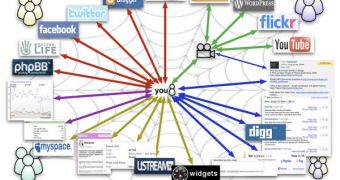Researchers from the Brain and Creativity Institute (BCI) at the University of Southern California claim that fast interactions, which now characterize social media, are undermining a number of human higher emotions, including moral values and compassion. They say that these feelings take time to evolve, and that the shifting environment of social media is not a very favorable one for that. The conclusions of the study, which has been one of the few out there oriented towards higher emotions, reveal that the modern-day level of interactions may be more beneficial to some regions of the brain than to others.
“For some kinds of thought, especially moral decision-making about other people's social and psychological situations, we need to allow for adequate time and reflection,” Mary Helen Immordino-Yang, who has been the first author of the new research that will appear in next week's Online Early Edition of the journal Proceedings of the National Academy of Sciences, explained. The science group behind the paper, led by the Director of BCI, corresponding author Antonio Damasio, have learned that it takes several fractions of a second for people to respond to signs of physical pain or fear in others.
However, it takes much more than that until individuals watching a photo or a video on the Internet feel empathy, compassion, admiration, or even mercy towards a certain situation they see. “Damasio's study has extraordinary implications for the human perception of events in a digital communication environment. Lasting compassion in relationship to psychological suffering requires a level of persistent, emotional attention,” the holder of the Wallis Annenberg Chair of Communication Technology and Society at the University of Southern California (USC), Media Scholar Manuel Castells, said.
“People generally don't think of emotions like admiration and compassion as having forerunners in evolution. We reveal that these emotions engage the basic systems of our physiology. The brain is honoring a distinction between things that have to do with physicality and things that have to do with the mind,” Damasio explained. “What I'm more worried about is what is happening in the (abrupt) juxtapositions that you find, for example, in the news. When it comes to emotion, because these systems are inherently slow, perhaps all we can say is, not so fast.”

 14 DAY TRIAL //
14 DAY TRIAL //